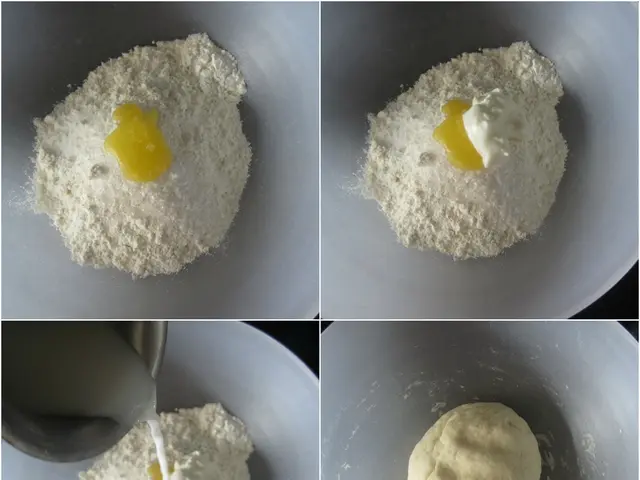Dealing with Your Mother's Demise: Strategies for Daughters to Cope Effectively
Losing a mother is an emotional and challenging experience that can impact individuals in various ways. A number of studies have shown that women may be more affected than men, experiencing increased chances of binge drinking, a greater decline in self-esteem, and a lower level of personal mastery (personal growth).
Grief, in general, has been linked to a variety of health issues. According to a study, it can increase the chances of cancer, cardiac issues, immune disorders, and high blood pressure. It's essential to remember that everyone's experience with grief is unique, and the effects of losing a mother can vary greatly from person to person.
During this difficult time, local support groups, online chat forums, and mental health professionals are available to provide assistance. If grief impairs your daily functioning or persists for longer than a year, it may be beneficial to seek the support of a mental health professional.
Offering maternal support to others who have experienced parental loss can also be a meaningful way to cope with grief. Books like "Healing After the Loss of Your Mother: A Grief & Comfort Manual", "Motherless Daughters: The Legacy of Loss", and "How to Survive the Loss of a Parent: A Guide for Adults" can provide valuable assistance during the grieving process.
It's important to note that daughters may experience grief differently than sons. They may feel a sense of loss for family traditions and cultural knowledge, and the death of a mother can make you feel like you've lost an important part of your support system.
Practicing mindfulness can help manage painful memories related to the loss of a mother. Focusing on happy reminders such as pictures, books, or keepsakes can provide comfort. Honoring a mother's memory can take various forms, such as donating to her favourite charity or achieving a personal goal she wanted.
If extreme grief persists for more than a year or if one has trouble completing daily tasks, speaking with a mental health professional may be helpful. In cases where grief becomes unbearable and one considers self-harm or suicide, immediate help is available through the 988 Suicide and Crisis Lifeline, Crisis Text Line, or Befrienders Worldwide.
The Diagnostic and Statistical Manual of Mental Disorders (5th ed.) notes an array of normal emotions in the year following parental loss, including regret, remorse, anxiety, guilt, emptiness, rage, anger, sadness, and numbness. Common psychological consequences of grieving the loss of a mother include depression, emotional disturbances, and narcissistic personality disorders due to loss of trusted internal objects. Physical symptoms often involve increased illness frequency and higher medical consultations, particularly among those feeling loneliness and lacking support.
Maternal support can be found in figures other than a biological mother. It's crucial to remember that it's okay to seek support from friends, family, or community members during this time. The American Psychological Association's Psychologist Locator can help find a grief recovery specialist.
In conclusion, navigating grief after the loss of a mother can be a challenging journey, but there is help and support available. It's important to remember that everyone's experience with grief is unique, and it's okay to seek help when needed.
Read also:
- Setting Up and Expanding Operations at a Soil Blending Facility
- Regional University's healthcare system strengthened through collaborative partnership with Chancellor Dr Fiona Hill
- Reminisced University Trustee David M. Flaum as a 'fervent advocate' for the University and community
- Exploring the vanguard of eco-friendly advancements: mycorrhizal partnerships and internal plant organisms








